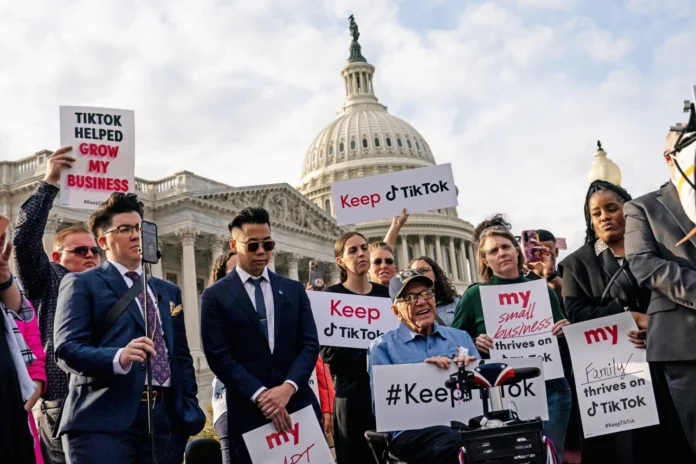The White House is pushing the Senate to quickly push forward a bill that would make Chinese tech company ByteDance sell TikTok.
The House passed the bill with a big vote of 352-65, and Biden said he’d sign it.
The White House is pushing the Senate to quickly push forward a bill that would make Chinese tech company ByteDance sell TikTok. The House passed the bill with a big vote of 352-65, and Biden said he’d sign it.
But things are moving slower in the Senate. They’re not as united on the issue, and they’ve got other tough talks this week to avoid a government shutdown.
White House national security adviser John Kirby emphasized the need for the Senate to quickly advance a bill that would require the Chinese tech company ByteDance to sell TikTok. The bill sailed through the House with strong support from both sides of the aisle.
“We’re glad the House acted on this. Now, it’s important for the Senate to follow suit,” Kirby said on ABC’s “This Week.”
“We’re concerned about data security and the potential misuse of information by ByteDance and the Chinese Communist Party. Every American should be worried about that.”
While the House passed the bill decisively with a 352-65 vote, the Senate seems to be taking its time. The bill would force ByteDance to sell TikTok to an American company or face a ban in the U.S.
Despite the momentum from the House, the Senate has other pressing matters to attend to, such as budget negotiations to prevent a government shutdown.
Senate Majority Leader Chuck Schumer has not committed to a timeline for considering the TikTok bill but has expressed support for selling TikTok to a U.S. company.
Some senators, like Bill Cassidy and Ben Cardin, are cautiously supportive of the bill but have yet to fully back it.
Outside of Congress, there’s debate over TikTok. Former President Trump, who once advocated for banning TikTok, now opposes it. Former Vice President Mike Pence cited Trump’s flip-flop on TikTok as a reason for not endorsing him in the upcoming election.
The TikTok issue reflects broader concerns about data security and foreign influence, highlighting the complexities of technology policy in today’s political landscape.
